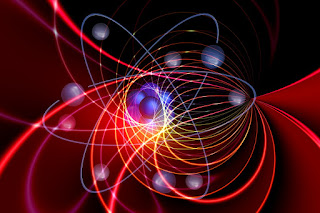Introduction
(What is Quantum Computing and How Does it Work?) Envision a reality where PCs can tackle
complex issues in short order, issues that would require old style PCs a long
period of time to settle. This isn't sci-fi; it's the commitment of quantum
processing. As we stand near the precarious edge of an innovative
transformation, understanding quantum figuring becomes pivotal. In this blog,
we'll dive into the basics of quantum registering, its likely applications, and
the difficulties that lie ahead.
What is Quantum Figuring?
Figuring
out Traditional PCs
Before we plunge into quantum registering,
understanding old style computers is fundamental. Traditional PCs use bits as
the essential unit of data, addressed as one or the other 0 or 1. These pieces
are handled through intelligent tasks to perform computations and run programs.
The
Quantum Contrast
Quantum processing, then again, utilizes
quantum bits or qubits. In contrast to bits, qubits can exist in numerous
states all the while, because of the standards of superposition and
ensnarement. This permits quantum PCs to deal with a huge measure of data in
equal, giving remarkable speed-ups to explicit errands.
Key
Ideas in Quantum Processing
Superposition
Superposition is a major standard of
quantum mechanics where a quantum framework can exist in various states on the
double. With regards to quantum figuring, this implies a qubit can be both 0
and 1 at the same time, dissimilar to old style bits which are completely
either.
Entrapment
Ensnarement is another basic idea where
coordinates or gatherings of qubits become interconnected with the end goal
that the condition of one qubit straightforwardly influences the condition of
another, regardless of the distance between them. This interconnectedness
permits quantum PCs to proficiently perform complex computations more.
Quantum
Doors
Quantum doors are what might be compared
to old style rationale entryways. They control qubits through quantum tasks,
empowering the development of quantum calculations. Normal quantum doors
incorporate the Hadamard entryway, Pauli-X entryway, and CNOT door.
How Quantum PCs Work
Quantum
Circuits
Quantum PCs work utilizing quantum
circuits, which are groupings of quantum doors applied to qubits. These
circuits can tackle complex numerical issues by exploiting superposition and
snare.
Quantum
Calculations
Quantum calculations are intended to run
on quantum PCs, using their one of a kind capacities. Some notable quantum
calculations incorporate Shor's calculation for figuring enormous numbers and
Grover's calculation for looking through unsorted information bases.
Expected
Utilizations of Quantum Figuring
Cryptography
Quantum figuring can possibly reform
cryptography. Shor's calculation, for example, can break generally utilized
encryption strategies like RSA, presenting the two difficulties and potential
open doors for growing new cryptographic procedures.
Drug
Revelation
In the field of drugs, quantum PCs can
mimic sub-atomic designs and collaborations at an uncommon scale, speeding up
drug disclosure and advancement processes.
Enhancement
Issues
Quantum processing succeeds at taking care
of advancement issues, which are predominant in ventures like operations,
money, and assembling. For instance, quantum calculations can streamline supply
chains, speculation portfolios, and creation plans more proficiently than old
style techniques.
Man-made
consciousness
Quantum registering can upgrade AI
calculations by handling immense datasets all the more rapidly and precisely.
This can prompt huge headways in man-made intelligence, from regular language
handling to picture acknowledgment.
Challenges in Quantum Registering
Specialized
Difficulties
Building steady and adaptable quantum PCs
is loaded with specialized hardships. Qubits are profoundly delicate to natural
unsettling influences, prompting mistakes and decoherence. Creating blunder
amendment procedures and keeping up with qubit intelligence are significant
obstacles.
Asset
Prerequisites
Quantum PCs require complex and costly
framework, including cryogenic frameworks to keep up with incredibly low
temperatures. These asset concentrated necessities make quantum registering
open just to a couple of examination organizations and tech goliaths as of now.
Moral
and Security Concerns
The force of quantum registering raises
moral and security concerns. The capacity to break current encryption
strategies presents dangers to information security and protection.
Furthermore, the turn of events and arrangement of quantum advances should be
painstakingly figured out how to forestall abuse.
The
Eventual fate of Quantum Processing
Current
Advancement
Huge headway has been made in quantum
processing, with organizations like IBM, Google, and Microsoft driving the
charge. Google's accomplishment of quantum matchless quality in 2019, where
their quantum PC tackled an issue past the range of traditional PCs, denoted a
significant achievement.
Guide
to Viable Quantum Registering
The way to viable quantum registering
includes defeating specialized difficulties, creating strong quantum
calculations, and making adaptable quantum frameworks. Analysts are hopeful
that we will see more viable uses of quantum figuring inside the following 10
years.
Joint
effort and Advancement
The fate of quantum processing will
probably be molded by joint effort between the scholarly world, industry, and
government. Drives like the Quantum Web and the Quantum Processing Guide plan
to encourage advancement and speed up the improvement of quantum innovations.
Conclusion
Quantum figuring holds the commitment of
altering different fields, from cryptography and medication disclosure to
enhancement and man-made consciousness. By bridling the special properties of
qubits, quantum PCs can handle issues that are right now immovable for
traditional PCs.







